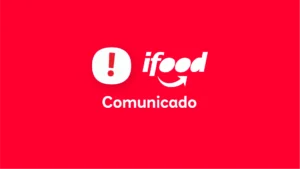Will embracing digitalization and adopting new technologies be enough for a company to prepare for what’s to come? In the opinion of futurologist Luiz Candreva, no. “Business is losing relevance. The future belongs to those who know how to navigate chaos and are comfortable in it”, said Luiz, head of Ayoo innovation, at the opening of its presentation at the “New Economy for Journalists” course, which iFood is promoting in partnership with Folha de S.Paulo.
When presenting himself to the public, he clarified that what he does is not a prediction of the future, but rather a drawing of possible, probable and desirable scenarios. from data and trends that prepare us for the new possibilities of tomorrow.
Right from the start, Candreva invited those present to think in another way, let's say, more chaotic. “People associate chaos with something negative. But, in fact, it is only in an environment of chaos that things can transform”, he pondered.
And he proposed exchanging our usual resistance to change for a more creative look at what could emerge tomorrow based on what is already changing today — be it a bullet train that connects cities in 15 minutes, or a steak that can come out of a printer .
If this abundance of information we receive every day doesn't make sense, that's okay. In fact, we are on the right path. For Candreva, in this context people need to face a new role: that of “chaos managers”, using the skills they have today to move forward, even on uncertain terrain.
Battle for relevance
Is easy? Of course not, he warns. “Our natural stage is one of inertia, no one likes to change their business model. We don't like transformation, but it is inevitable. The more movement there is in the world, the more chaos is produced.”
A new look, according to him, is essential for survival. The futurologist explains that it is natural to design future scenarios from the perspective of what each of us considers to be normal. But reality, according to him, is something that goes far beyond what we believe. Our opinion, in this case, matters little. What counts are the facts and data.
It is in the midst of this chaos that companies must understand how they can continue to be important in the daily lives of their target audience. “There has always been a constant battle for relevance between professionals and companies. The difference is that now this happens at a faster speed”, he says. “The change in relevance was accelerated because today we have more access to information and we change our mental model more quickly.”
To close, Luiz left his three lessons about the future:
The future does not involve value judgments
To navigate transitions well, you need to have an open mind. “What we think, what we want, matters very little because it clouds our ability to see tomorrow.” His tip, therefore, is not to make value judgments about trends and news, but to analyze the data and information that is available “in an agnostic way”.
The future is personalized and unique
Speaking to an audience of journalists, Luiz asked where people could advertise 20 years ago. The answer: in a few vehicles. “Today, anyone can advertise anything easily on the internet. The future is distributed equally to everyone, but changes must make sense for everyone.”
We can't see the future with the eyes of the past
In fact, not even in the present, reinforces Luiz. “Don't get attached to the visions that we have today or have had, because they lead to distortions when we look forward. What seems impossible today may be reality in the future. And the best way to embrace the future is to leave the past behind.”


